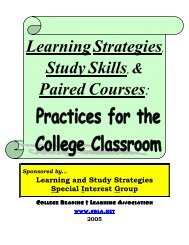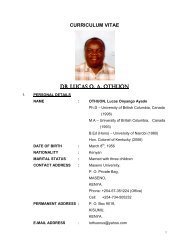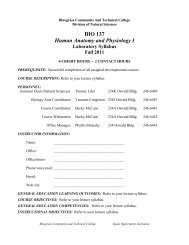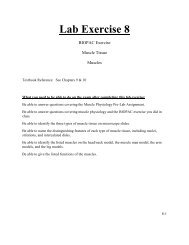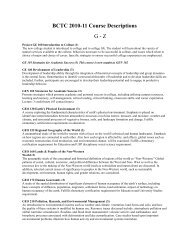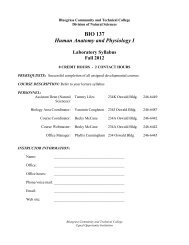THE NATURE, UNITY AND VALUE OF GEOGRAPHY
THE NATURE, UNITY AND VALUE OF GEOGRAPHY
THE NATURE, UNITY AND VALUE OF GEOGRAPHY
Create successful ePaper yourself
Turn your PDF publications into a flip-book with our unique Google optimized e-Paper software.
8 <strong>THE</strong> PR<strong>OF</strong>ESSIONAL GEOGRAPHER<br />
specialize in analyzing spatial behavior and structure with regard to particular pro-<br />
cesses like industrial location, trade and transportation, health services, or urban<br />
structure. It is this topical diversity that has opened geography up to attack as lacking<br />
a core, as raiding the territory of other fields, because we have not made clear the<br />
commonality of our concern with how these topics exemplify principles of spatial<br />
behavior and organization.<br />
In addition to our traditional introductory survey course, which so often em-<br />
phasizes the cultural diversity of the landscape, it may be useful to consider a rigor-<br />
ous senior course which emphasizes spatial thinking (how we perceive and operate<br />
in the environment), behavior and structure of individuals, organizations and coun-<br />
tries. This course when done well, demonstrates the centrality of geography to an<br />
advanced education. Individuals, private firms, and public entities are continually<br />
confronied with critical spatial decisions, viz., where to invest, where to put<br />
facilities, where, how and why to zone or extend infrastructure, where various kinds<br />
of impacts of location decisions will occur, and how to deal with such regional<br />
problems as health or transit across a tangle of jurisdictions. These are all geographic<br />
problems, and geography can and should help train all those private and public<br />
sector persons who will make these kinds of decisions.<br />
The Occupation or Profession of Geographer<br />
Although it may be evident that the pervasiveness of spatial decisions in life should<br />
make geography an essential educational endeavor at all levels, what of the geog-<br />
rapher in other roles? It’s only too clear that for now the appellation “geographer”<br />
lacks specificity and meaning to most employers. The name “geographer” is<br />
used in the intelligence community and in foreign affairs to mean persons trained in<br />
some cciuntry or region of the world, but that is a restrictive role. The specialty of<br />
cartographer is the clearest occupation of geographers, but again serves only a<br />
minority of our graduates.<br />
In fact, geography graduates are successfully competing for and working in a<br />
number of public and private sector positions that involve locational analysis or<br />
location decisions or evaluations-notably in planning at all levels and of all types.<br />
Whether we use the term geographer, regional analyst, or location analyst, our need<br />
is to demonstrate and publicize the importance to public agencies and private firms<br />
of employing one or more, just as they employ economists or psychologists to cover<br />
other needs. Clearly, geographers are competing for this kind of work with planners,<br />
regional or urban economists, specialists in marketing and operations research, and<br />
related business graduates. These fields (and also regional science) have grown in<br />
part because of geography’s failure to provide adequately trained professional spe-<br />
cialists.<br />
The preceding remarks basically concern geography in the colleges and univer-<br />
sities. But strengthening these programs is not enough. Yet more difficult but as<br />
important is to revitalize geography in the schools and to make geography known to<br />
the general public and to the decision-makers of society. These concerns are going<br />
to be, I hope, the focus of AAG and NCGE leadership over the next few years. I still<br />
believe that the first task requires more than the casual cooperation between the<br />
AAG and NCGE, but at least federation and the bringing to bear of vastly greater time<br />
and resources than we‘ve expended before. And I suspect that the latter, national<br />
public awareness, also requires levels and kinds of collaboration, as with the Na-<br />
tional Geographic Society, that we have not seen in the past, and investment in<br />
publicity and publishing that we have not been willing to make.<br />
Rewards and recognition will only come from work and investment. The real world<br />
is more competitive than collegial. In fact, the respect for geography has vastly



